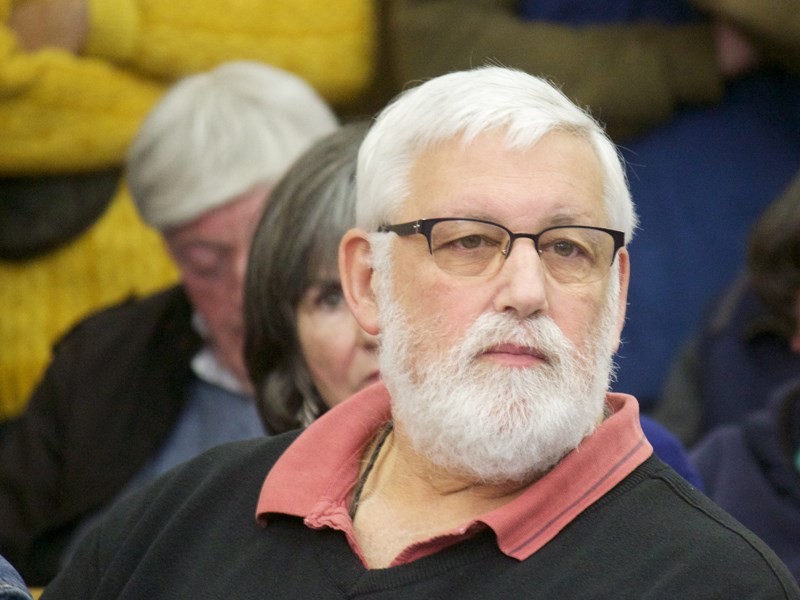Tla’amin Nation is waiting for a final stamp of approval for funding its share of the new wastewater treatment plant in Powell River.
According to Tla’amin hegus Clint Williams, the federal government is sponsoring the community’s share of between $10 million and $15 million.
“We're still in the final stages of getting approval so we've submitted the engineering drawings to the federal government for its approval,” said Williams. “I'd say we're about 80 or 90 per cent confirmed.”
City of Powell River is completing its final designs to submit for approximately $30 million in infrastructure funding.
Some Powell River residents are still trying to block the plant from being built in Townsite, or near any residential area in the city.
The more the group attempts to delay or lobby provincial and federal governments to postpone or reverse decisions already made, the city risks missing the opportunity for the upcoming round of spring grants, according to city director of infrastructure Tor Birtig.
Since the beginning of the year, opponents of the plant have filled the public gallery at council meetings, speaking to councillors in firm resistance to the plant’s site and impact on Townsite, including odours, environmental effects and decreasing real estate values.
“The story is that 70 people show up,” said Townsite Ratepayers Association Liquid Wastewater Plant steering committee co-chair, Stephen Miller. “Why are so many people showing up? Because they were never consulted. That's the problem.”
At the City of Powell River committee of the whole meeting on April 4, some councillors said they were pushed past the point of frustration with some of what Miller had to say.
“There were a lot of falsehoods in what was being said and I would argue the tone was not conciliatory,” said councillor Russell Brewer. “The tone was condescending and while I respect their right to present in that way, I was offended, frankly.”
Miller said the biggest and most expensive project in Powell River’s history is not a done deal. He argued that council failed to seriously consider a second location for the plant and has not fulfilled its duty of transparency and public engagement.
A second location had previously been proposed south of the existing Townsite sewage plant and was researched and rejected by city staff.
Miller said the location still needs to be resolved and he contends a seven-hectare city-owned piece of property next to the old transfer site on Marine Avenue across from Willingdon Beach Campsite should be considered.
According to Birtig, the transfer site land was bought by the city in 2016, after the wastewater plan had been submitted and approved by BC Ministry of Environment. Birtig said the transfer station was never considered because of cost.
City officials have repeatedly confirmed the plant will be built on the old golf course lands in Townsite and that the public consultation process was conducted correctly.
In the June 2016 approval letter, then minister of environment Mary Polak stated, “I am satisfied that the direction and commitments into the liquid-waste management plan are supportable, and the public and first nations review and consultation process meets ministry requirements.”
The letter also directed that the approval was conditional upon the “plant being located in the Townsite neighbourhood of Powell River.”
Councillor Rob Southcott said he had not seen an alternative to the location or the engineering and treatment system of the plant, and he wished the two sides could work together on what is, essentially, a done deal.
“I don't believe there is a viable alternative,” said Southcott. “Where that goes for me then is could we please talk about what we can talk about constructively. There's a lot we can talk about in making this thing work.”



